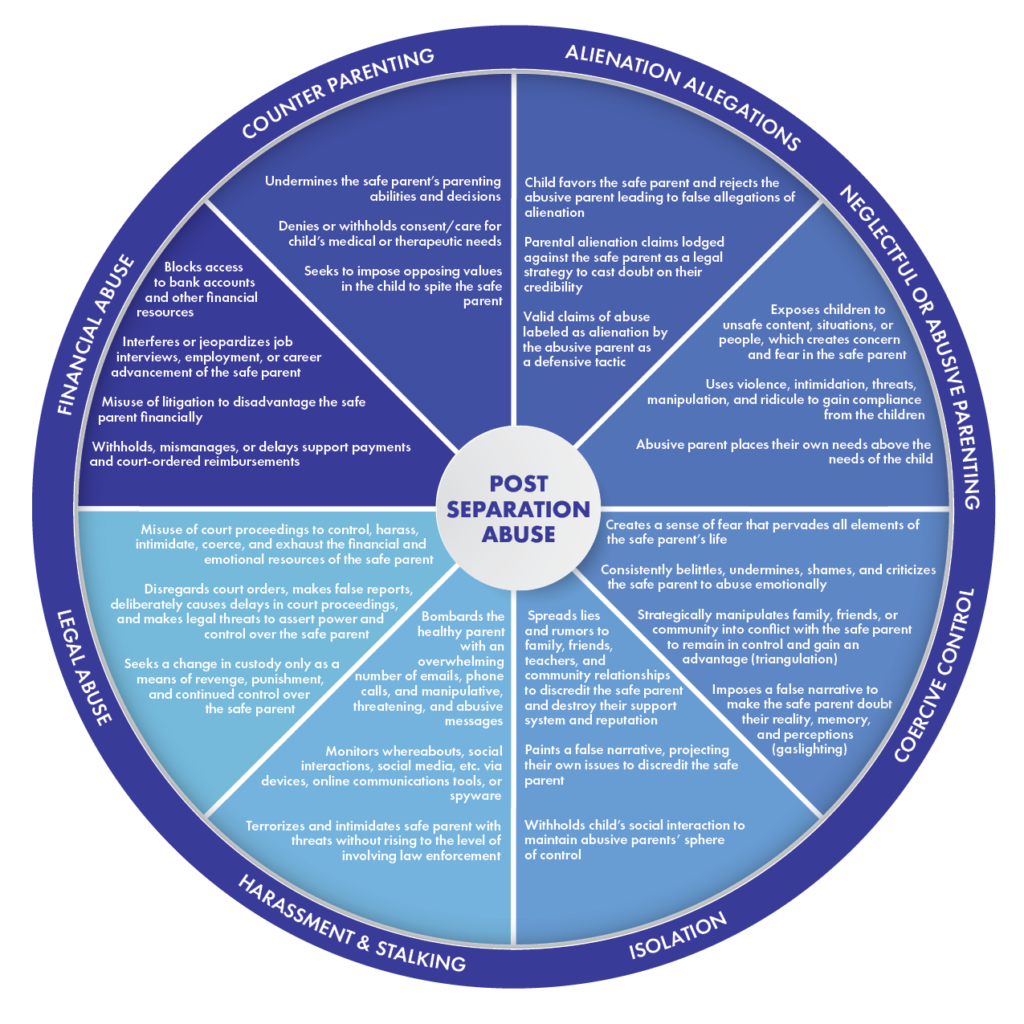What is post separation abuse?
Post-separation abuse refers to the ongoing abuse that occurs after a relationship has ended, typically in cases where there was already a pattern of domestic violence or coercive control during the relationship. While many people assume that the abuse stops once a couple separates, post-separation abuse demonstrates that an abuser’s need for control often continues, especially when there are children involved or shared assets. This type of abuse can take various forms, including emotional manipulation, financial control, legal harassment, and interference in co-parenting.
One of the most common forms of post-separation abuse is legal harassment, sometimes referred to as “abuse by the court” or vexatious litigation. Abusers frequently misuse the family court system to maintain control over their ex-partner by filing frivolous lawsuits, requesting unnecessary hearings, or constantly seeking modifications to custody arrangements. This not only drags out the legal process, costing the victim time and money, but also keeps them emotionally entangled in the conflict. Legal abuse can feel like an endless cycle, as victims are repeatedly forced to engage with their abuser in court.
Financial abuse is another significant aspect of post-separation abuse. Even after separation, abusers may withhold child support or spousal support, refuse to divide shared assets, or purposely drag out financial negotiations. In some cases, they may also engage in “economic sabotage,” such as quitting a job or hiding assets to avoid financial responsibilities, making it difficult for the victim to achieve financial independence.
For those with children, post-separation abuse often takes the form of co-parenting sabotage. Abusers may use children as pawns to continue controlling their ex-partner. They might refuse to follow custody agreements, withhold the children during visitation, or make unfounded accusations of parental alienation. In extreme cases, they may engage in emotional manipulation of the children, turning them against the other parent, a term many call Domestic Violence by Proxy. This form of abuse is particularly damaging to children, who become caught in the crossfire of the abuser’s attempts to maintain power.
It’s important to recognize that this can be just as harmful as abuse that occurs during the relationship. Survivors often need ongoing support, both legal and emotional, to navigate this phase of the abuse. Family courts are becoming more aware of these dynamics, and some states are implementing laws to address issues like legal harassment and coercive control. However, victims of post-separation abuse still face significant challenges in protecting themselves and their children from ongoing harm.
Post Separation Abuse Power and Control Wheel
(Credit: One Mom’s Battle, Tina Swithin)

